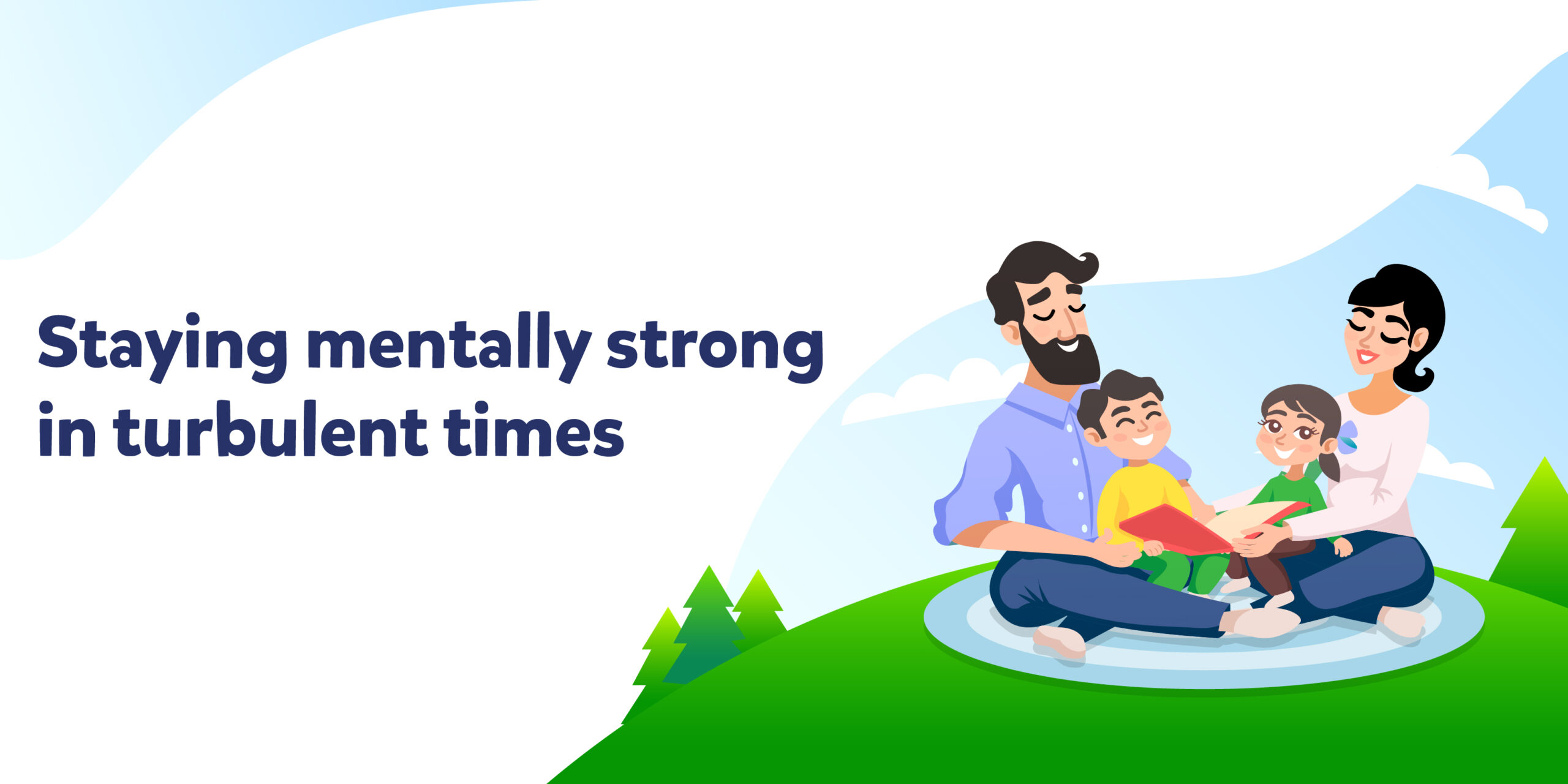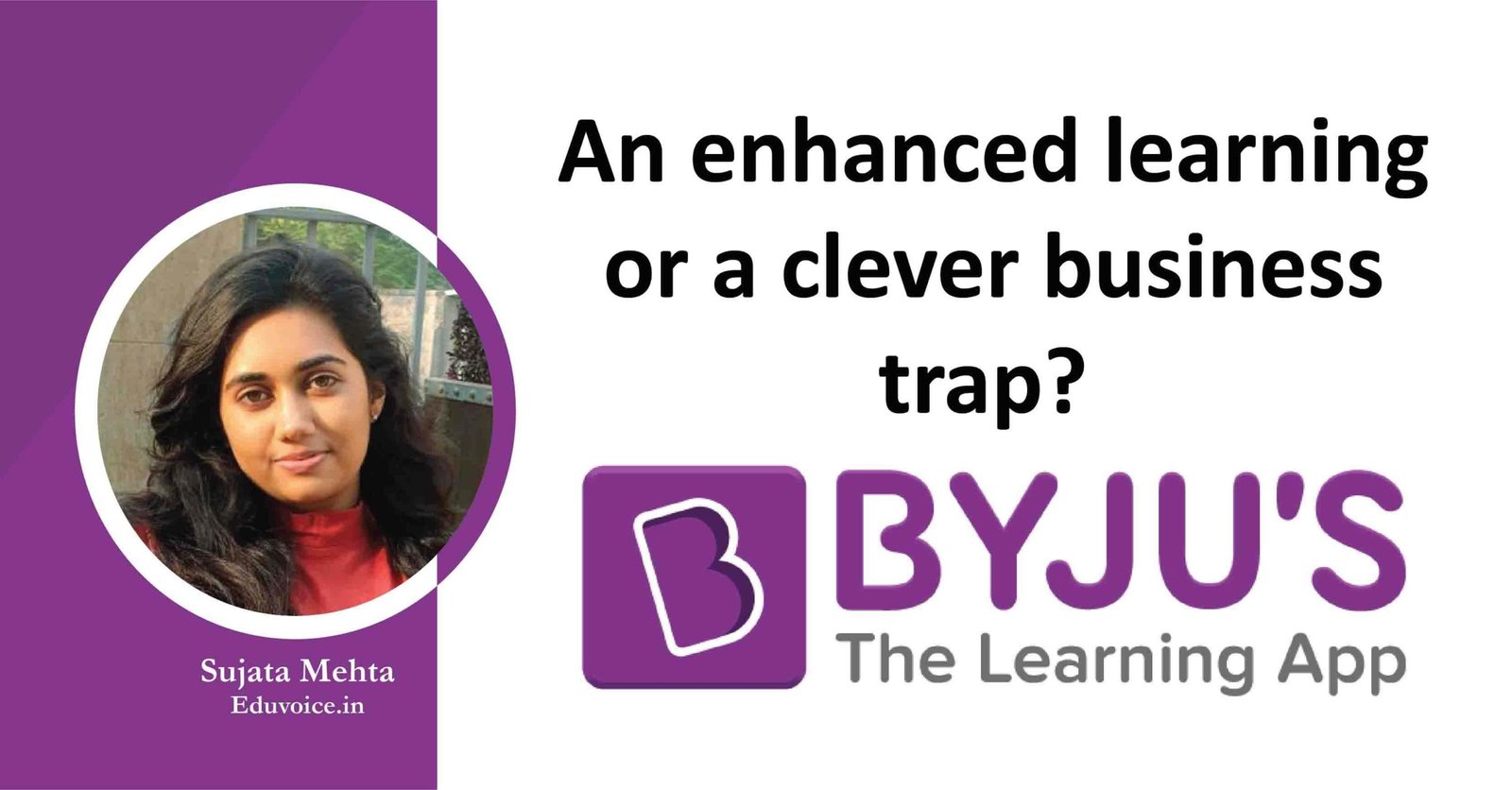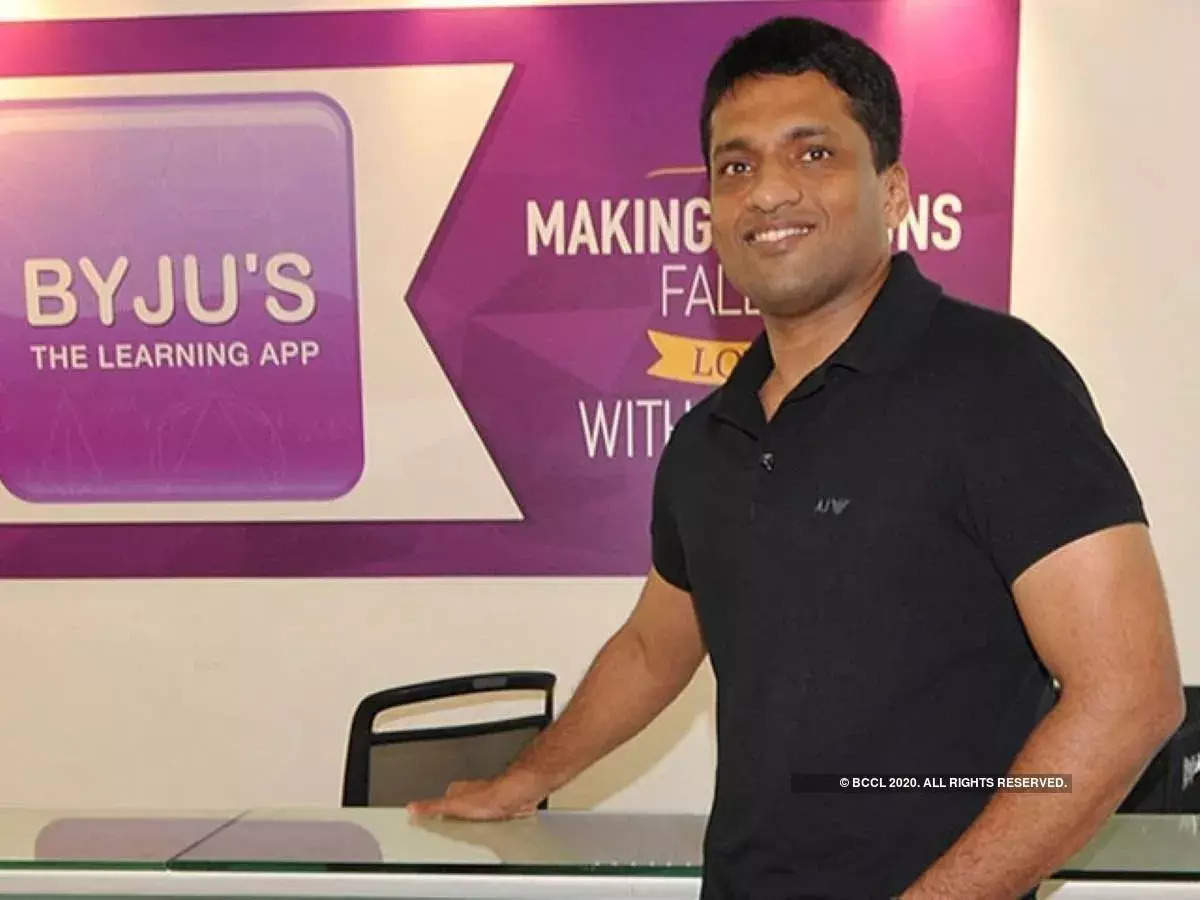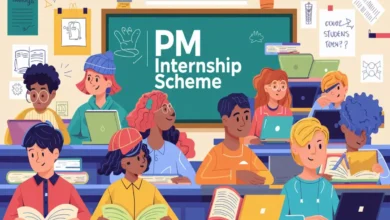Why Indian Parents Are Happy & Celebrating Byju’s Death? Parents Desperately Want Shutdown of Byju’s

Why are Indian Parents Happy & Celebrating Byju’s Death? Parents Desperately Want Shutdown of Byju’s
Every parent wants what’s best for their kids in the future. Most parents don’t hesitate to spend a lot of money on education to give their kids the best chance of success. The amount of money spent in the education industry is beyond anyone’s comprehension, from enrolling students in schools today to sending them to foreign colleges for higher study. Notably, people view education as a massive money-making machine when billions of rupees flow through the sector.

Parents interested in inclusive and engaging learning settings have been encouraged by the rapid expansion of technology-enabled education businesses in India, like Byju’s, Vedantu, and Topper. However, parents also worry about their children. Parents throughout India are celebrating Byju‘s, an edtech startup, passing away soon. Most parents worldwide (84%) concur that technology is assisting them in juggling their employment and parenthood.
The overwhelming use of technology, high-speed internet, automatic translation software, and accessibility features worries over 72% of parents worldwide. They believed this could cause kids to become overly reliant on the internet and potentially harm their social skills.
Everyday technological advancement is displacing some home teaching and learning practices. Because some pupils are being harmed by technology, parents have become more understanding than in the past. As an educational technology corporation, Byju’s has been extorting much cash from parents.
Due to the business’s losses, several of its workers have also been let go. Overall, parents have benefited a little from the company’s demise because they can now utilize more traditional teaching methods and prevent their kids from being overly reliant on technology at a young age.
Most parents support closing down Byju’s business because it severely torments the impoverished parents and burns its investors. Regarding the workers, despite the decent pay, the corporation demands a lot of time from each worker, both physically and emotionally.
Byju’s, a “flagship program” and the “most requested learning app,” was introduced in 2015 and promised kids and their parent’s unbelievable success throughout its platforms. The app reportedly has 2.8 million paying customers among its 40 million total users. Additionally, these figures were from before the Covid epidemic forced the closure of the schools.

Many businesses have developed solutions to serve schools, instructors, and students in accordance with their needs. Byju’s is one such “sparkling golden star” in the field.
But how did an education platform become so successful in such a short time? The problem is allegedly Byju’s toxic and unfriendly workplace environment. There was an incident with the business’s former sales representative who said he quit when he was forced to offer the package to a scrimping driver with just Rs. 700 ($9) in his bank account. The driver requested a loan from his manager and promised the salesperson that “he would work 24 hours a day to repay the loan.” That’s the day when the salesman resigned.
Sales representatives guilt-trip helpless parents.
According to reports, sales people or corporate development executives (BDE) utilize guilt-trap strategies to get low-income and illiterate parents to purchase the packages. The author described the entire procedure by which the salespeople supposedly trap the parents in an essay titled “How Byju’s hooks parents” in The Morning Context.

According to reports, salespeople frequently employ hard-sell strategies. Encouraging everyone they come into contact with to download the app and continue using it after the 15-day free trial period. The overworked and overcommitted sales crew must put in long hours to accomplish unattainable goals.
When a sales representative warns parents that their children will have a bleak future if they don’t register for the learning app, they frequently take out loans. This is especially true for lower-middle-class and illiterate parents.
Cory cited a report on Byju’s about how BDEs make parents feel guilty. One former sales representative summed up the pitch as follows: “Your son is nothing in life if he doesn’t go with Byju’s — and if you, as a parent, can’t [secure] your kid’s happiness and future, you may as well not had kids,” he wrote in a tweet. Any father marginally susceptible to such ploys would almost quickly fall into their trap.

The courses have some issues. The first is a communication gap. All of Byju’s classes are offered in English. Their target families—those who might purchase packages for their kids—come from less-educated backgrounds. The kids attend schools where Hindi or the other language is the primary language. The courses serve no purpose in such circumstances.
The loan crap hole
The fact that Byju offers financing choices through two partners is another issue with the company raised in the articles. In certain instances, they are accused of not telling the parents that the EMI alternative they are choosing would involve taking out debt in the parents’ names. If a parent doesn’t pay the EMI, the loan provider starts threatening to demand repayment. Additionally, it harms the parents’ CIBIL score. Only the initial 15 days of the course can be used to cancel a student’s course subscription.
Parents are responsible for paying the remaining EMIs if a student quits using the application after a few months because Byju has already received payment, and they are responsible for repaying the loan.
In India, where there are more than 1.3 billion people, competition for resources is always fierce. Parents invest a lot of their hard money in coaching lessons and private tuition to provide their kids the best chance at a better life and employment. India’s thriving private coaching sector operates outside the traditional school day and prepares kids for competitive and admission tests.
“The team members most impacted were those from the material and design departments. They have dramatically decreased the number of content, solution-writing, and design teams across all group organizations. Some of these groups have even lost all of their members. They had previously laid off staff to avoid having their name closely associated with the companies they acquired. Still, now they have done so from the core operations, “A source was reported by MoneyControl as stating.

Nearly 350 permanent employees had to be let go by Toppr alone, and another 300 staff were requested to quit. They were also warned that they would not receive pay for about one to one and a half months if they didn’t. Six hundred contract workers were also told to leave the company.
“Byju’s has finished integrating Toppr, bringing nearly 80% of its talented staff into the Byju’s ecosystem. The next stage is to optimize teams to realign corporate priorities and spur long-term growth, “a representative for Byju told the newspaper.
The private tuition market has transformed into a massive ed-tech market due to technological advancements and internet access, where millions of students and parents compete fiercely to get ahead of one another.
In India, parents are rapidly being replaced by the internet when it concerns education. According to a study by Hong Kong-based technology firm Lenovo, over 90% of Indian parents claim that their children are more likely to check something online than to ask them for assistance.

Between March 31 and April 27 of this year, a survey of more than 15,000 people was conducted throughout the world, including in India, the US, Mexico, Brazil, China, Japan, the UK, Germany, France, and Italy.
It was shown that Indians, at 89%, are one of the top users of technology to improve education for kids and balance their life, with Chinese users coming in second at 85%. The most valuable tech business in the world, Think & Learn Pvt Ltd, which operates the educational platform Byju’s, has also risen to the top of investors’ price lists following a fall in its FY21 (2020-21) sales that caused a rise in its sales multiple.
The company has a sales ratio of over 40 for the year, according to Byju’s FY21 revenue, which was revealed last week. Byju was valued at nearly $13 billion as of March 2021. Investors use the financial indicator known as the revenue multiple to determine the value of startups, typically loss-making ones, by dividing the company’s valuation by revenue.
The revenue multiples for Byju’s closest consumer-facing tech competitors upgrade, PhysicsWallah, Eruditus, Unacademy, and Vedantu for FY21 are between 6 and 33.
The revenue multiples of some of the biggest tech businesses in the world, including 2U Inc, Udemy, Terms of infrastructure, Coursera, and Chegg, range from two to nine. Revenue multiples for the most significant listed Indian education businesses by market capitalization range from one to ten. Examples include Shanti Education, Zee Learn, CL Teach, Professional Point, and Veranda Learn. These businesses, however, are considerably less valuable and profitable than Byju’s.
With resources devoted to Rs 2,428 crore, Byju posted a net loss of approximately Rs 4,588 crore in FY21 (a slight dip from FY20). And all this occurred when the epidemic fueled an edtech boom, especially in the K–12 sector, as India’s 250 million+ school-going populace was restricted to homes and reliant on online learning.
Byju’s “business marketing expenses” and “employee benefit expenses” increased dramatically, becoming the two highest costs on its FY21 income statement, despite an increase in new user symbol and learning hours.
It shows that Byju’s loss for FY21 exceeded its total losses during the previous seven years, from FY14 to FY20, by a factor of ten. According to documents filed with the Registrar of Corporations (RoC), the company’s cumulative losses from FY14 to FY20 were Rs 452.77 crore on total revenues of Rs 4,976.15 crore.

It’s interesting to note that Byju’s parent firm, Think & Learn Pvt Ltd, had two years of financial success before FY14. In FY12 and FY13, the Byju Raveendran-owned company, which was still tiny in scale, had a net profit of 1.38 crore on total revenues of Rs 20.81 crore.
However, as the tech platform quickly expanded, its overall cost skyrocketed due to acquisitions, overhead, marketing and promotion, instructor fees, and other charges. The addition of celebrity Shah Rukh Khan as a brand ambassador and pricey collaborations with sporting events and sports organizations further affected the bottom line.
According to Crunchbase, Byju also collected more than $5.5 billion in capital and completed 16 acquisitions. The Chan Zuckerberg Initiative was supported by renowned venture capital firms, including Tiger Global, Sequoia Capital India, Proses Investments, Lightspeed Venture Capital firm, Mirae Asset, IIFL Finance, Sumeru Endeavors, and others. Byju’s has received the money in over 26 rounds, according to Tracxn.

The company stated that it generated sales of Rs 10,000 crore in FY22, or about 4X that of the prior fiscal year, along with its FY21 figures. These financials have not been audited, though. Byju’s noted that in the first quarter of the fiscal year, it earned revenues of Rs 4,350 crore (FY23). It remains to be seen if the legendary edtech can change the course and make a profit.
edited and proofread by nikita sharma






